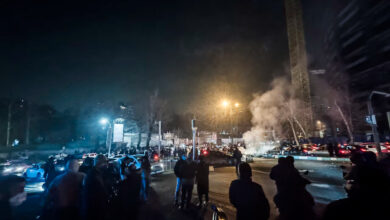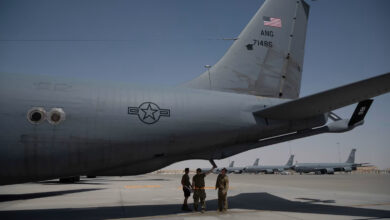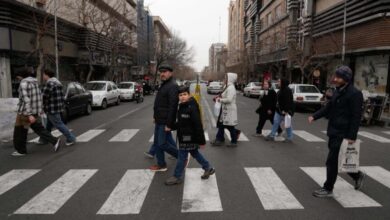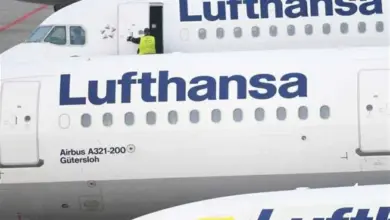
Ahead of two key elections in Iran in February, the Supreme Leader's hard-line allies have cracked down on activists, journalists and artists to try to tighten their grip on the country’s faction-ridden politics, officials and analysts say.
Rights groups and opposition websites said dozens were summoned by the intelligence ministry for interrogation and had been detained. The Iranian government has denied there has been a wave of arrests, describing the reports as "baseless".
Some officials and analysts believe that the aim is to limit pragmatist President Hassan Rouhani’s influence and popularity after his success in reaching a historic nuclear deal with the six major powers in July that ended over a decade-old stand-off.
“The hard-liners are wary of Rouhani’s influence at home and abroad. They fear it may harm the balance of power in Iran,” a senior official close to Rouhani told Reuters on condition of anonymity.
Human rights groups and the United Nations have criticized Iran for what they say is a crackdown on freedom of expression and the media. There were no precise numbers of just how many people had been detained, no details of what charges if any were brought or whether there had been any trials.
Analysts say that suppressing dissenting voices has been stepped up since September when the country’s most powerful figure Supreme Leader Ayatollah Ali Khamenei warned of "infiltration” by Iran's enemies.
The judiciary has sentenced Iranian-American Washington Post journalist Jason Rezaian to jail after being arrested in July 2014 on espionage charges. The US government and the journalist's family rejected the charges. The sentencing was followed by the arrest of Iranian-American businessman Siamak Namazi when visiting his relatives in Tehran.
Grip on power
Iran’s economic hardships persuaded Khamenei to support Rouhani's efforts to reach the nuclear deal, under which Tehran agreed to curb its nuclear program in exchange for an easing of sanctions on its flagging economy.
The analysts say the hard-liners hope that the wave of arrests will help to tighten their grip on power and protect Khamenei’s authority from being challenged by the president with the elections just weeks away.
Analysts and officials close to the government believe the arrests will also show the limits of the president’s power internally and demoralize Iranians who could support pro-reform candidates in the next elections.
An election win in Iran's parliament and the Assembly of Experts, a clerical body with nominal power over the supreme leader, would give Rouhani's faction too much power and influence in the country, hard-liners believe.
“It has always been the situation in Iran before the elections," said Iran-based analyst Saeed Leylaz. "Of course the nuclear deal and efforts to end Iran’s isolation have increased Rouhani’s popularity,” he said, adding:
“Rouhani’s opponents are worried about its impact on the vote results.”
Rouhani and his centrist and moderate backers could well be rewarded at the ballot box with their election promises of delivering a freer society.
Khamenei's "red line"
“Growing prestige at home and abroad for Rouhani means less authority for Khamenei and it has always been Khamenei’s red line,” said political analyst Hamid Farahvashian.
“More flexibility in foreign policy, has always led to more pressure at home in Iran,” he said.
The United Nations has called on Iran to stop arresting, harassing and prosecuting journalists and other activists.
"It is likely to continue, at least until the upcoming votes and possibly beyond … the hard-liners are worried about Rouhani's comparatively higher popularity … because of the nuclear deal,” said Meir Javedanfar, politics lecturer at the Interdisciplinary Centre in Herzliya.
“By arresting reporters and activists, they are trying to make Rouhani look weak and incompetent.”
Rouhani, who won a landslide election in 2013 on a progressive platform, has occasionally criticized the crackdown but has done little to stop it.
Some supporters of Rouhani are losing patience, fearing now that he might lack the authority to create a freer society.
“Rouhani blames hard-liners for the limitations but words are not enough. I still support him because there is no other option,” said a journalist in Tehran, who asked not to be named.
“His only concern is the economy and keeping his position."
Analysts say Rouhani lacks the constitutional power to take practical steps to stop the suppression.
Under Iran’s constitution, Khamenei has the final say on all state matters and he has made sure that no group, even hard-liners, gain enough power to challenge the supreme leader’s authority since taking over the position in 1989.
Rouhani under scrutiny
However, some doubt that Rouhani, who represented Khamenei on the Supreme National Security Council for more than two decades, has the stomach to confront the leader and his hard-line supporters to improve Iran’s human rights record.
“He is part of the establishment. He has gained this status because of the Islamic republic of Iran. Why should he shoot himself by weakening the system?” said Farahvashian.
If voters reward Rouhani's allies in the elections, a pro-Rouhani majority in parliament could help him to expand social and economic liberties.
Khamenei controls Iran's judiciary, armed forces, the Guardian Council that vets laws and election candidates, public broadcasters and also enjoys the loyalty of Iran’s elite Revolutionary Guards, which suppressed mass protests that followed the 2009 presidential election.
Since 1989 when he took over the position from the late founder of Iran's 1979 Islamic revolution Ayatollah Ruhollah Khomeini, Khamenei has always made sure that no group, including from among his own hard-line allies, gains enough power to challenge him.
“Rouhani is a smart politician. He knows that Khamenei will never tolerate any challenge to his authority. Therefore, Rouhani will not make such a mistake as to confront Khamenei,” said a senior diplomat in Tehran.
“Such confrontations will jeopardize Rouhani’s political future. He does not want to become a lame duck president … for the rest of his term.”
A relative of Khamenei said : "Our leader only thinks about the interests of our brave people, our country and the Islamic republic. Political infighting is beneath him.”




